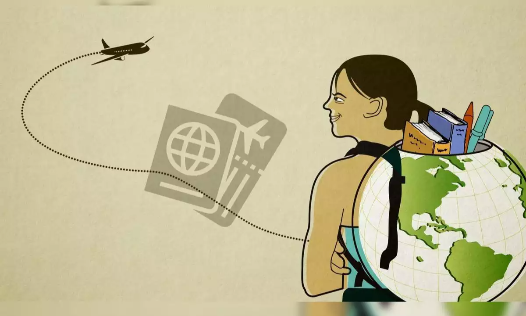Payment is being processed. Please do not refresh or close this page until your payment is complete.
 Book an Appointment
Book an Appointment

In an era where skill development and new-age technologies dominate global discourse, Indian students have long viewed international education as a pathway to success. However, recent policy shifts in key destinations like the UK and Canada are forcing a re-evaluation of traditional study-abroad choices.
This article addresses the visa challenges, rising costs, and the broader implications for students planning to pursue undergraduate (UG) or master’s degrees abroad. It also highlights why India remains a great story and how careful planning can shape a brighter future.
India’s story is one of transformation. As new-age technologies like AI, data science, and cloud computing rise, India is becoming a hub for global tech talent. The opportunities for skill development are immense, particularly in industries focused on digital transformation. With a rapidly growing digital economy, India is well-positioned to meet global demand, and Indian students can leverage this momentum to their advantage.
For those pursuing international education, it’s essential to align academic goals with these emerging industries. New-age technologies offer a wealth of possibilities, but the pathway to success is more complex than just choosing a well-known destination.
Recent changes to UK visa policies are already reshaping the landscape for Indian students. The UK government has placed restrictions on dependent visas, which could lead to a significant decline in postgraduate applications. Nearly 40% of Indian postgraduate students bring dependents, and this change may lead to a projected 15-20% drop in applications. Many of these students will likely turn to alternative countries where they can relocate with their families. For undergraduate students, the projected decline is smaller, at around 5-10%, as this group tends to be less reliant on dependent visas.
Additionally, the increase in minimum monthly maintenance funds required for UK student visas, effective January 2024, is expected to put further financial strain on Indian students. The required monthly funds have increased by 28%, with the new balance set at £1,715 outside London and £2,030 in London. This sudden jump will likely deter applicants from financially limited backgrounds, with a projected decline of 5-7% in overall applications.
One of the main attractions for Indian students studying in the UK has been the Graduate Route visa, allowing up to two years of post-study work. However, with this visa currently under review, there is growing uncertainty among prospective students. If this policy is further restricted or eliminated, it could lead to an additional 10-15% drop in applications from India. As post-study work rights are a key factor in choosing a destination, Indian students may increasingly opt for countries with more favorable work visa policies, such as the United States, Ireland, or Germany.
As international education becomes more expensive, the reliance on student loans has grown, but this is a grey area that requires caution. Taking on significant debt without a clear understanding of return on investment (ROI) can lead to financial difficulties down the line. With rising living costs in countries like the UK and Canada, as well as uncertain post-study work opportunities, students must evaluate their loan options carefully. It’s crucial to explore scholarships, grants, and part-time work opportunities before committing to large loans. Being prudent in financial planning will ensure that students don't find themselves in unmanageable debt upon graduation.
Canada, once seen as a welcoming destination for Indian students, is also tightening its policies. A recent decision to reduce student visa approvals by 35% in 2024 is expected to severely impact Indian applicants. In 2023, over 230,000 Indian students were enrolled in Canadian institutions, but this new restriction could lead to around 80,500 Indian students being denied study permits next year alone. By 2025, a further 10% reduction is expected, potentially affecting another 23,000 students.
The consequences of these visa cuts extend beyond access to education. Stricter scrutiny on financial documentation, academic backgrounds, and institutional credibility will create added hurdles, particularly for students applying to smaller, less recognized institutions. This could limit access to post-study work permits and, ultimately, permanent residency—a key draw for Indian students pursuing education abroad.
Source: https://economictimes.indiatimes.com/nri/study/navigating-global-education-visa-caps-financial-strain-and-the-future-of-higher-learning-for-indian-students/articleshow/113600234.cms